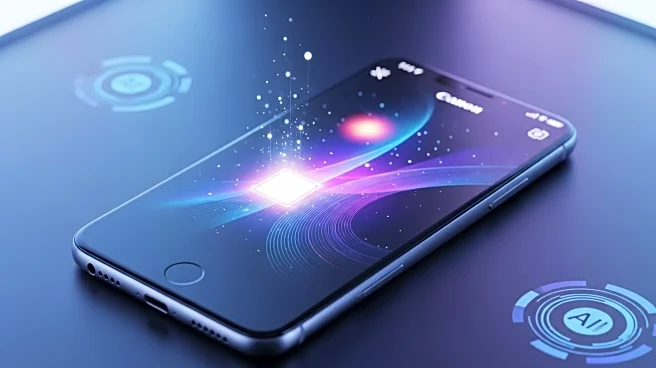What's Happening?
OpenAI's new app, Sora, designed for AI-generated videos, has achieved over one million downloads in less than five days, surpassing the initial download rate of ChatGPT. The app, available only in North America, requires an invite for usage. Sora offers a vertical feed of AI-generated videos, similar to TikTok, and allows users to create videos by writing prompts to OpenAI's Sora 2 model. The app's Cameo feature enables users to create videos featuring themselves or others who have consented to share their likeness. However, the limited guardrails on Sora have led to videos featuring OpenAI's Sam Altman and content infringing on copyright, raising concerns about the training data used by OpenAI's model. In response, OpenAI has updated Sora to provide users and rights holders more control over the use of their likeness and characters.
Why It's Important?
The rapid success of Sora highlights the growing interest in AI-generated content and its potential impact on the entertainment industry. The app's ability to create videos of recognizable characters has prompted pushback from the entertainment sector, emphasizing the need for robust copyright protections in AI applications. OpenAI's move to offer more control to users and rights holders is a significant step in addressing these concerns, potentially setting a precedent for how AI-generated content is managed. The development underscores the balance between innovation and ethical considerations in AI technology, with implications for content creators, rights holders, and consumers.
What's Next?
OpenAI's updates to Sora aim to mitigate copyright issues, but the company must continue refining its approach to ensure compliance with intellectual property laws. As Sora's popularity grows, OpenAI may face increased scrutiny from the entertainment industry and legal challenges related to copyright infringement. The company will likely need to engage with stakeholders to develop comprehensive guidelines for AI-generated content. Additionally, OpenAI's strategy to monetize Sora effectively will be crucial in sustaining its growth and addressing potential financial losses from video generation.
Beyond the Headlines
The emergence of Sora and similar AI-driven platforms could lead to broader discussions on the ethical use of AI in content creation. The ability to generate videos featuring real individuals raises privacy concerns and questions about consent. As AI technology advances, society may need to reevaluate existing legal frameworks to accommodate new forms of digital expression and protect individual rights. This development could also influence cultural perceptions of authenticity and creativity in media.








